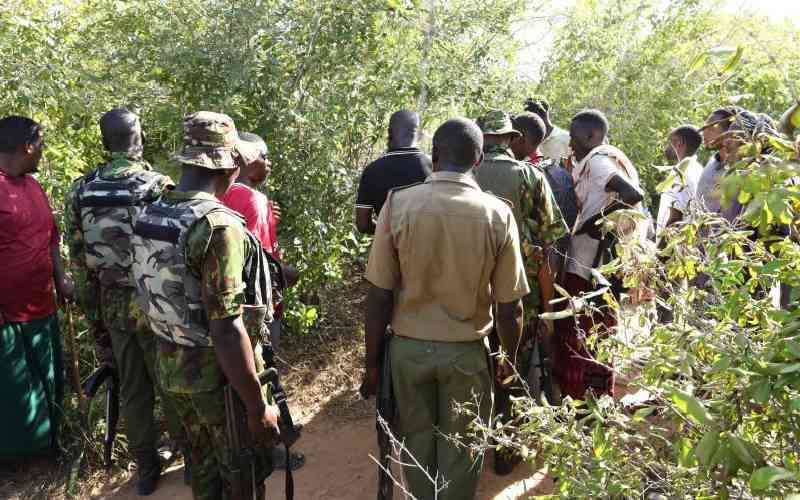School Closures Due to Tribal Conflicts in Kilifi-Tana

Tensions are running high in Ganze and Magarini constituencies along the Kilifi and Tana River border, leading to the closure of seven schools and the displacement of families. The conflict stems from a dispute between local farmers and Somali herders over grazing rights, which has escalated following the disappearance of a herder. Ganze MP Kazungu Tungule and Kilifi security personnel held a public baraza in an attempt to mediate the situation.
The affected schools include Muryachakwe, Gabina, Milore Ranch, Upendo Junior, Mrima wa Ndege primary schools, Ambassador Kithi Secondary School, and Bofu Primary School. The closure of Muryachakwe Hospital further exacerbates the crisis, as nurses and doctors have fled, leaving patients without care.
The situation escalated when over 100 armed herders surrounded Lagobaya village after one of them was allegedly attacked by farmers for grazing on their land. The herder's whereabouts are unknown, but police discovered his bloody clothes in a nearby thicket, heightening fears for his safety. Locals report that at least three farmers have been killed in the past two months, accusing the security team of neglecting early warning signs of the impending conflict.
Kilifi County Commissioner Josphat Biwott stated that two individuals have been arrested in connection with the herder's disappearance. He explained that the conflict arose after the herder's cows trespassed onto private property, leading to an assault. Biwott assured that the security team is working to restore normalcy and urged parents to allow their children to return to school, with police officers deployed to provide security.
Despite these assurances, many families remain displaced, traumatized, and reluctant to return home. General Service Unit officers have been deployed to monitor the situation. Locals accuse herders of invading their farms, while some herders claim they pay local chiefs and farmers for grazing rights. Biwott confirmed the practice of herders paying for grazing access but noted that the current problem arose when animals trespassed beyond agreed-upon boundaries.
Efforts are underway to find a lasting solution. Biwott stated that an agreement has been reached with herders to respect farmland, and landowners are urged to consider land size before leasing it for grazing. A meeting is scheduled between the area security committee, herders, and landowners to address the issue before the planting season.
Sokoke Ward MCA Thaura Mweni criticized local chiefs for allegedly fueling the conflict by signing grazing agreements without proper planning, noting that land is often leased for as little as Sh2,000. He also highlighted a history of violence, including the recent killings of a woman in Sokoke and subsequent retaliatory attacks.
Adu Ward MCA Samson Zia described the situation as dire, emphasizing the increased risk of teen pregnancies and early marriages for children forced out of school. Kilifi assembly Speaker Teddy Mwambire lamented the perennial conflicts over grazing land, which have disrupted education in the area since the 1990s.
The crisis has forced some families to seek refuge in remote areas, including the Shakahola forest, fearing attacks. All schools in the affected area remain closed, exacerbating the disruption to education and community life.








